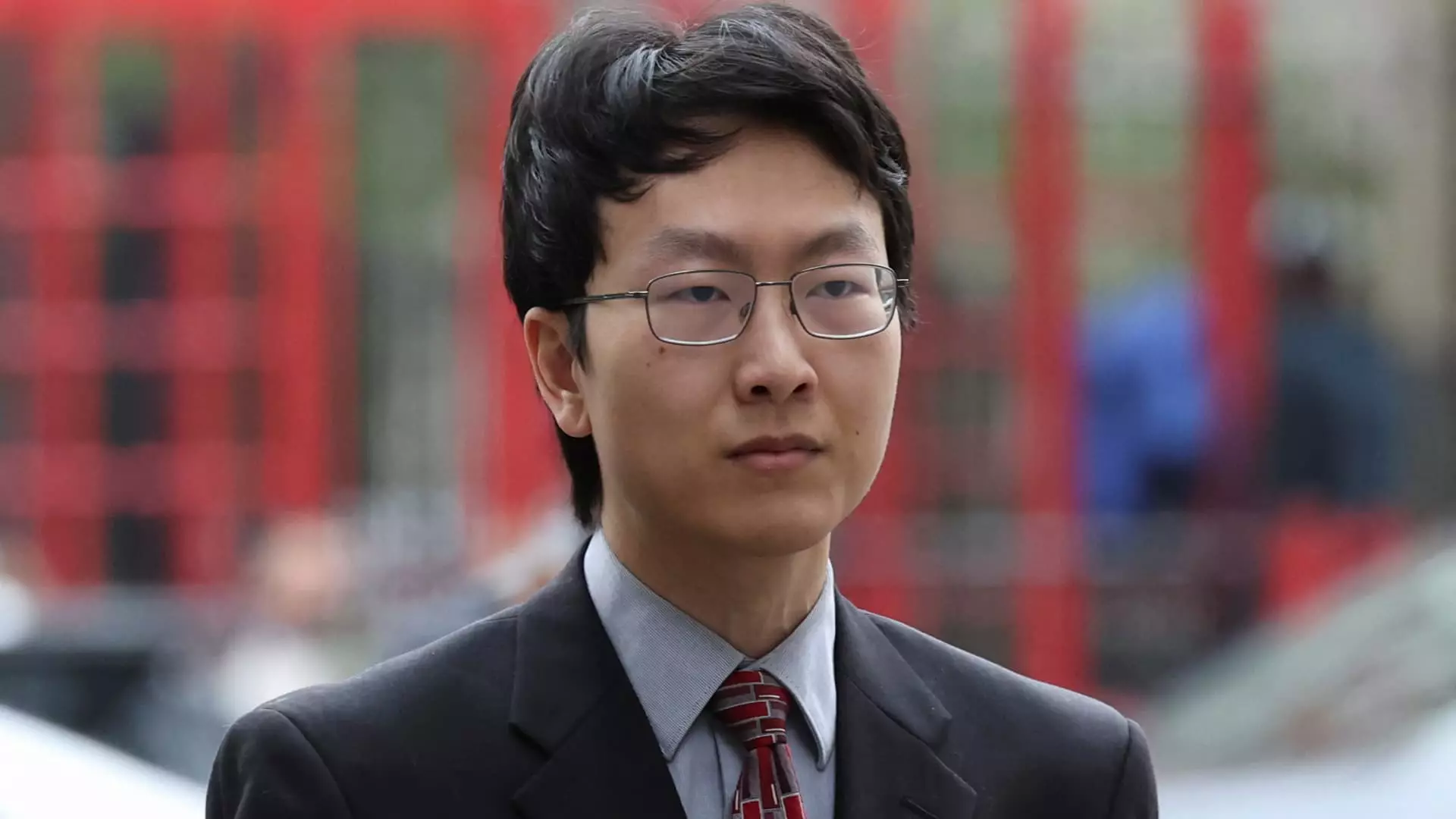The recent sentencing of Gary Wang, co-founder of FTX and its former technology chief, marks an important moment in the unfolding drama surrounding the collapsed cryptocurrency exchange. Last week, Wang received a sentence of time served followed by three years of supervised release on four counts, including conspiracy and wire fraud. This outcome solidifies his place in the series of legal consequences that have befallen FTX’s leadership, punctuating not just his guilt but also the multifaceted dynamics of cooperation and accountability in corporate malfeasance.
Wang’s role within FTX was notable; as a co-founder and chief technology officer, he played a crucial part in developing the technology that underpinned the exchange’s operations. His position gave him access to sensitive information, but Wang’s defense hinged on the assertion that he lacked complete knowledge of the misconduct occurring under FTX’s roof. This narrative resonates with many cases where peripheral players in corporate scandals contend that they unknowingly contributed to wrongdoing. Wang’s insistence that he was unaware of how customer funds were misappropriated places him in a grey area of complicity, swirling in a morass of ethical ambiguity that often pervades corporate culture.
However, it’s crucial to scrutinize this rationale. In the world of finance—particularly within the complex ecosystem of cryptocurrencies—having an understanding of financial practices is part and parcel of the job description. Wang’s plea reflects a broader trend in corporate governance where individuals attempt to mitigate responsibility by claiming ignorance amidst large-scale transgressions. While his cooperation with authorities and subsequent contributions to detecting fraud demonstrate remorse and an earnest desire for redemption, this also raises critical questions about the awareness levels and ethical compass of technology leaders in finance.
Wang’s cooperation with federal investigators was widely acknowledged as significant. His testimony not only helped elucidate the operations of FTX but also provided insight into the greater fraud dynamics involved. Assistant U.S. Attorney Nicolas Roos characterized him as an invaluable asset in untangling the convoluted schemes that contributed to the FTX collapse. However, the nature of such cooperation inevitably stirs a contentious debate: does it absolve individuals of their moral or professional obligations, especially when their actions—or inactions—allow fraud to proliferate?
The sentencing of Wang and his co-defendants underscores the complexities in balancing punishment with leniency for those who cooperate. The judicial system often offers lighter sentences for cooperators, operating on the premise that they contribute more significantly to the greater public good by exposing wrongdoing. The $11 billion forfeiture and the absence of a lengthy prison sentence suggest a legal strategy focused on restitution and deterrence rather than mere punitive measures. Yet, is this the right approach? As corporate malfeasance grows increasingly intricate, the line between active and passive involvement in wrongdoing becomes more pronounced, pressing society to redefine accountability in these spaces.
Learning from FTX: The Way Forward
The saga of FTX, characterized by shocking levels of deceit and mismanagement, serves as a cautionary tale for the cryptocurrency and financial sectors. As markets evolve and new technologies emerge, the necessity for a robust ethical framework becomes evident. Companies must cultivate a culture that fosters transparency and proactive reporting of unethical behavior rather than retreating to the shadows of ignorance.
Regulatory bodies are also beginning to acknowledge the need for reform. The steps taken against FTX employees, heightened scrutiny on crypto exchanges, and more stringent guidelines in corporate governance are laying the groundwork for a future less plagued by such crises. Wang’s story, while tragic for many involved, may catalyze a shift in how tech leaders approach governance and ethics in financial institutions.
Gary Wang’s sentencing is not merely an isolated legal event; it reflects broader societal issues regarding corporate accountability, ethical conduct, and the repercussions of collective failure in leadership. While he may seek to atone for his part in the FTX downfall, Moving forward, the lessons drawn from this debacle could very well shape the regulations and ethical frameworks within the cryptocurrency landscape, ensuring that such a downfall is not repeated in the future.

